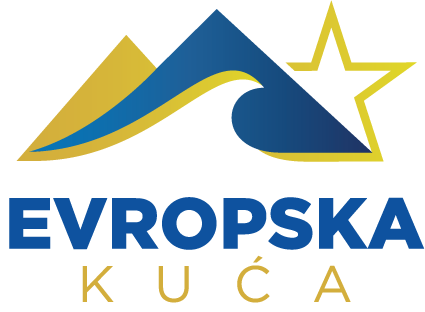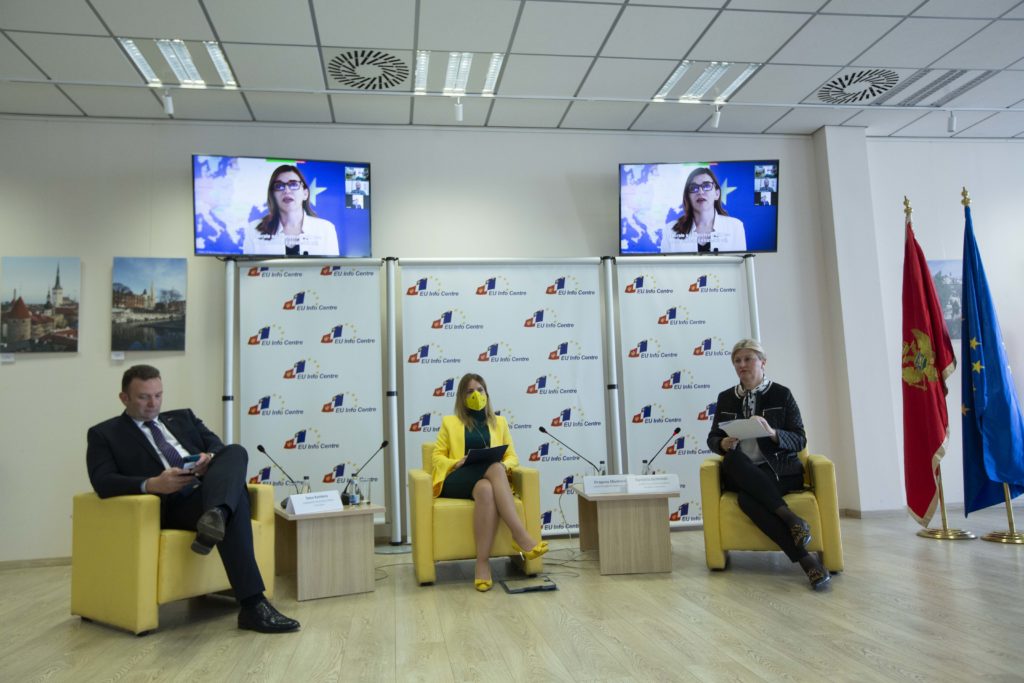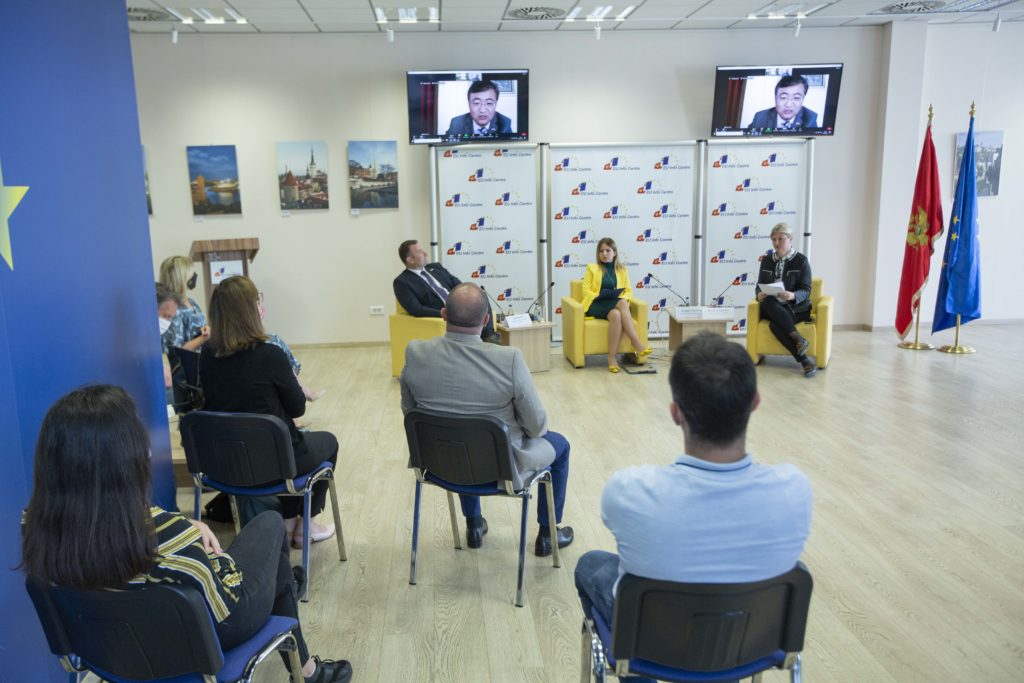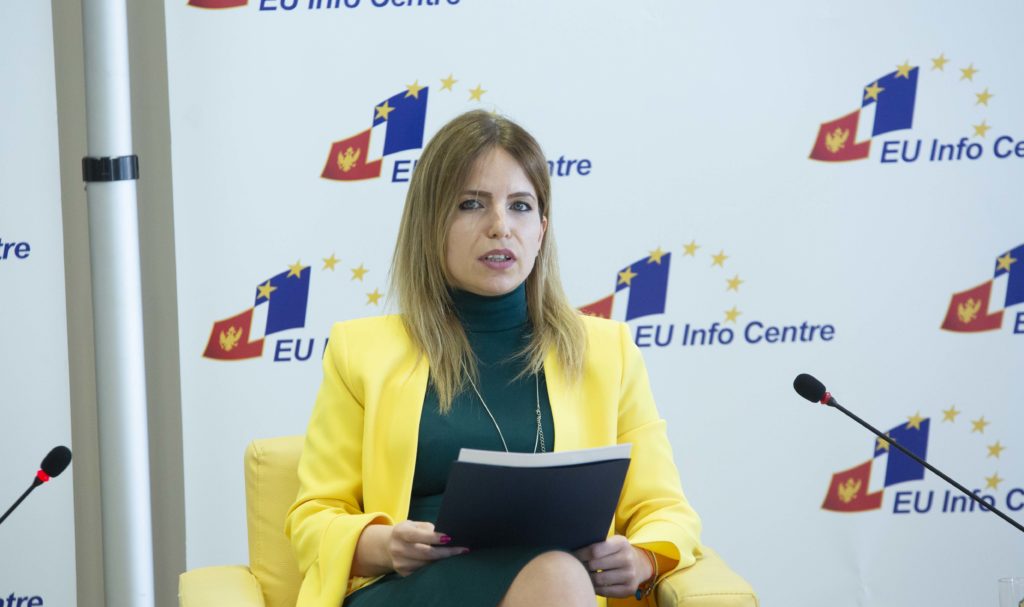The Faculty of Economics of Montenegro, with the support of the EU Info Centre, organised a seminar “EU, China and the Western Balkans: Challenges and Prospects for Further Integration,” which aimed to explore geopolitical and geo-economic roles of powerful players in the Western Balkans and their impact on the European integration of Montenegro.
The seminar, which was organised at the EU Info Centre, was broadcast live on the Zoom platform, with the Ambassador of the European Union to Montenegro Oana Cristina Popa, her Chinese colleague Liu Yin, and the Advisor of the Chief Negotiator Dragana Markovic as participants. The event was moderated by Danijela Jacimovic, a professor at the Faculty of Economics.
During the hour and a half of the seminar, Frank Schimmelfennig – professor at the Swiss Federal Institute of Technology in Zurich, Kong Tianping – professor at the Chinese Academy of Social Sciences, Michael Kaeding – professor at the University of Duisburg-Essen, also joined the discussion, as well as the President of the Atlantic Alliance of Montenegro Savo Kentera.
Ambassador Popa assessed that the enlargement of the EU is by its nature a geopolitical issue, which implies investments in peace, stability and prosperity in Europe, as well as the strengthening of the Union itself. She stated that China is one of the EU’s most strategically important partners, despite the fact that “our relations are complex and challenging at various levels.”
“At the same time, and in different policy areas, China is a cooperation partner with which the EU has carefully coordinated its goals. A negotiating partner with which the EU must find a balance of interests, an economic competitor in the race for technological leadership,” said Popa via video message.
She also said that it is understandable that the possibilities of the Chinese economic activity are attractive for the Western Balkans, which has significant investment needs.
“However, Montenegro and other Western Balkan countries have chosen the EU membership as their political and strategic goal. With this commitment come certain rules and obligations on the path to a full EU membership. For example, investment projects must comply with EU standards in terms of public procurement, competitiveness, environment, energy or transport. Let me conclude that it is up to Montenegro and the region to manage relations with China to their advantage, while at the same time working full steam ahead towards the EU membership. This is a challenging task for policy makers, but a task that definitely benefits the Montenegrin economy and its citizens,” Popa concluded.
Chinese Ambassador Liu Yin said that the Western Balkans, China and the EU are open to enhancing cooperation and that this cooperation opens up many opportunities so that everyone benefits from it. He added that relations between Montenegro and China are based on quality mutual trust.
“Our countries have always treated each other as equals. Although historically there have been obstacles in cooperation, China has supported Montenegro’s efforts to join the EU. Likewise, Montenegro has always supported China. There is a political consensus of leaders in Montenegro and China. The two prime ministers often hear each other on the phone and maintain written communication. We are glad that Montenegro is moving towards becoming a member of the EU,” said Ambassador Yin.
He added that there benefit between the relations, and that the political cooperation between Montenegro and China experienced great development when they supported Montenegro’s early accession to the EU.
“China has no geopolitical or other pretensions in Montenegro or the Western Balkans as a whole, nor does it want to compete with the European Union for influence in the region. China is open to cooperating with the EU to help the Western Balkans,” said the Chinese Ambassador.
The Adviser to the Chief Negotiator Dragana Markovic said that Montenegro is following its European path while cultivating good cooperation with global political and economic actors.
“As a country that unwaveringly follows the European path, but also a member of NATO, Montenegro wants and nurtures good cooperation with global political and economic actors of crucial importance for all countries of the Western Balkans. Today’s world order is experiencing tectonic changes, which is especially seen in the light of the current crises and events. The EU, the US, China, as well as other countries, can benefit greatly from cooperation on issues of global importance. What is much more important for us in the geopolitical balance of power is the fact that it is in the interest of our region to join the Union, and that it is not only our interest but also the interest of the Union,” Markovic said.
The seminar was organised within the prestigious EU project Jean Monnet Centre of Excellence: Challenges of the Enlargement Policy – European Versus Chinese Diplomacy in the Western Balkans 2020-2023,” conducted by the Faculty of Economics of Montenegro.



